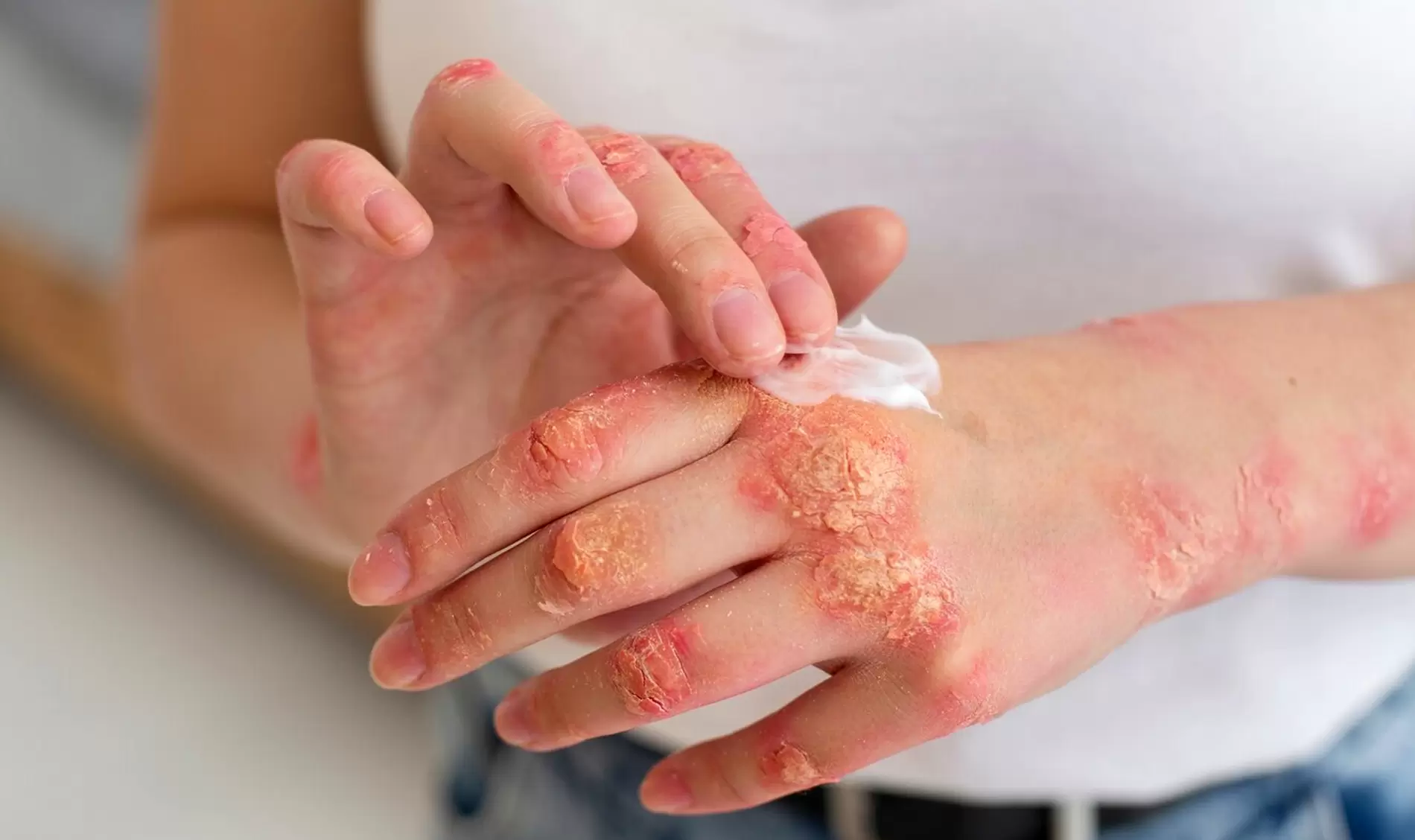
PSORIASIS
Psoriasis is a chronic autoimmune skin condition characterized by the rapid growth of skin cells, resulting in thickened, red patches of skin covered with silvery scales. It is a noncontagious condition that can occur anywhere on the body but most commonly affects the scalp, elbows, knees, lower back, and nails.
Causes and Risk Factors
- Stress
- Genetics
- Infections
- Skin injuries
- Certain medications
- Cold, dry weather
- Smoking and heavy alcohol consumption
Signs & Symptoms
- Red Patches of Skin
- Dry, Cracked Skin
- Itching and Burning
- Thickened or Ridged Nails: Nail thickening, ridging, pitting nail separation
- Joint Pain and Swelling
- Small Scaling Spots
- Scalp
Management and Treatment
Treatments aim to reduce inflammation and clear the skin. Options include:
- Topical treatments (corticosteroids, vitamin D analogues)
- Phototherapy (exposure to ultraviolet light)
- Systemic medications
- Biologic drugs (target specific parts of the immune system)
- Lifestyle changes: Avoiding triggers such as stress, infections, and skin injuries can help manage psoriasis symptoms. Maintaining a healthy lifestyle, including regular exercise, a balanced diet, and avoiding smoking and excessive alcohol consumption, can also be beneficial.